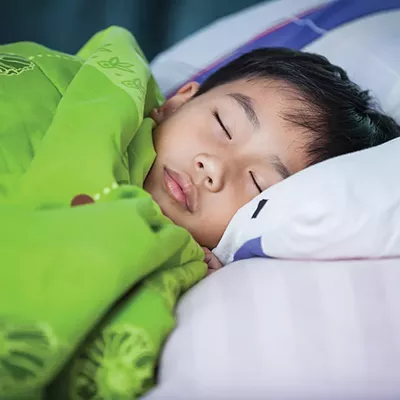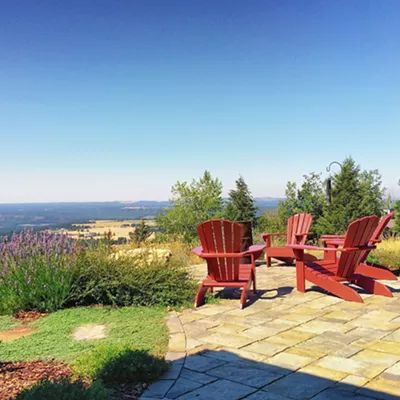If you have depression or anxiety, it doesn't mean you are flawed or broken: It's a human problem, explains Dr. Sean Smitham, a clinical psychologist in Spokane.
First, he says, no one ever taught you how to deal with your incredibly powerful brain, about feelings and how to cope with them. Second, when two parts of your brain are in conflict, the more ancient part is going to win, Smitham explains at a recent Healing Spokane forum at WSU Spokane.
The newer, chatty, mammal part of the brain — the part behind what we think of as the voice in our head — can get overpowered by the more ancient reptilian brain, where our fight-or-flight responses are located, he says. Call it a design flaw.
"Every time (fight-or-flight) gets activated, the reptile brain gets in the driver's seat," Smitham says. "That top part keeps chattering away, but it's no longer driving the bus. This is why you can't talk yourself out of a panic attack. You can't talk yourself out of anxiety very well, either."
In the U.S., more than 40 million adults experience anxiety disorders, which are the most common mental health concern, according to the National Institute of Mental Health.
Those disorders are expensive: they cost the U.S. more than $42 billion a year, according to a 1999 study commissioned by the Anxiety and Depression Association of America, with about half of that cost due to frequent medical visits by people experiencing symptoms that mimic physical illnesses.
The good news: There are ways to treat both anxiety and depression, and there are plenty of things people can do to complement treatment they get from their doctors and physicians.
"I think what people need to know is, there's different ways of looking at medical issues," says Renu Sinha, a thyroid surgeon at Inland Surgical Associates who also has a clinical education in Ayurveda, a system of medicine that has been used for thousands of years in India. "And I think what we want people to do is use allopathic [traditional or mainstream medicine] and complementary approaches to see what works best for them."
For anxiety and depression, working with a team of doctors and caregivers is important to create a plan tailored to you. Whether you work with a dietitian, a physical trainer, a therapist or someone who practices traditional Chinese or Ayurvedic medicine, there are a variety of approaches that can help balance body and mind aside from, or in concert with, medication.
It's important to note that all of the examples provided below are mostly intended to help with mild to moderate anxiety, and in all cases — but especially with severe anxiety and depression — it is essential to work with your primary care team and not just rely on any one technique, Sinha says.
WHAT YOU CAN DO
It turns out that even MODERATE EXERCISE — think a brisk walk — can help relieve the symptoms of anxiety, says Richard Young, who is researching correlations between exercise and anxiety at WSU Spokane.
While high-intensity cardiovascular exercise may come with other benefits, if someone is just looking to ease anxiety, it looks like moderate exercise, when people get their heart rate to between 50 percent and 85 percent of their maximum, is beneficial, Young says.
For some, MINDFULNESS meditation can help through breathing and guided-thought exercises to focus on the here and now and have an open attitude, says Tracy Skaer, a tenured professor in the WSU College of Pharmacy.
"We say the time is now. Forget later, forget before," Skaer says.
She shares a poem called "The Guest House," by Rumi, that starts, "This being human is a guest house. Every morning a new arrival. A joy, a depression, a meanness, some momentary awareness comes as an unexpected visitor. Welcome and entertain them all!"
Traditional Chinese Medicine (also called TCM) is holistic, meaning it takes into account the connection between mind and body, and body and environment, and how physical health problems might be related to emotions, and vice versa, says Sherry Wu, a rheumatologist and licensed acupuncturist at the VA Medical Center in Spokane.
With anxiety, as with other ailments, TCM tends to focus on making sure that different body systems are in balance, through DIET, HERBAL REMEDIES, ACUPUNCTURE, TAI CHI, QI GONG and other techniques. Organs are each associated with different emotions, colors, seasons and tastes, which a TCM practitioner would work with a patient to get in balance, to make sure they are all working together, Wu says.
Similar to TCM, Ayurveda focuses a lot on self-care, and a holistic balance between body and mind.
Each person's baseline or blueprint is different, Sinha says, so advice for what to eat and do is highly individualized; what works for one person won't necessarily work for another. However, in general, Ayurvedic teaching might recommend warm, soft foods for people who have anxiety, and DISCOURAGE DRINKING ALCOHOL AND CAFFEINE.
Similar to TCM, Ayurveda also uses herbs, and encourages mindful meditation, YOGA, and moderate exercise, such as swimming or walking, Sinha says.
Across practices, there are a variety of SUPPLEMENTS that are thought to be helpful for different symptoms of anxiety and depression, including ashwagandha, SAM-e, kava and St. John's wort, but each has its own risks and potential side effects, and some can interfere with medications, so it is essential to work with a pharmacist and your doctor if you decide to take them. Skaer says St. John's wort, in particular, can cause a lot of drug interactions.
"I have been very surprised that our allopathic partners in the community have been very open-minded to learning about these things that they can utilize with their own patients to help them feel better," says Sinha, who helped found Healing Spokane to educate people about complementary health care. "I think it allows the patient to be engaged more and have options. We all want options for everything, right? That's the beauty of all of this." ♦























